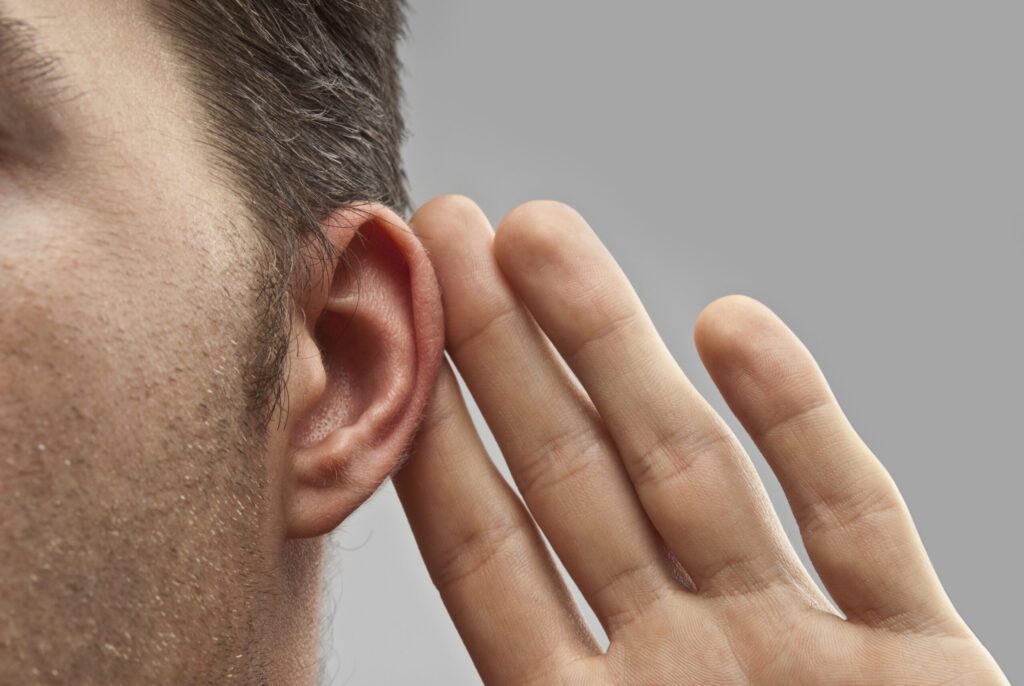Say What?! These Facts About Hearing Loss May Surprise You
Hearing loss is a problem that affects nearly 50 million Americans, and many don’t know that their hearing loss is having a negative impact on other aspects of their lives. Unfortunately, there are many common misunderstandings and myths concerning hearing loss. Take our quiz and test yourself on the ins and outs of hearing loss.
- True or false? Hearing loss is an inevitable part of getting older and cannot be prevented.
- Approximately 48 million people live with hearing loss in the U.S. What percentage of those with hearing loss are younger than 65?
- One-quarter, or 25 percent
- One-third, or 33 percent
- One-half, or 50 percent
- Two-thirds, or 66 percent
- How many children ages 12 to 19 are estimated to have a sign of hearing loss in one or both ears?
- One in five
- One in 10
- One in 15
- One in 20
- Hearing loss is caused by the cumulative effect of many different factors over time. Which of the following factors contribute to hearing loss?
- Genetics
- Certain medications
- Exposure to loud noises
- Smoking and diabetes
- All of the above
- True or false? Noise exposure is the most avoidable cause of hearing loss.
- True or false? Hearing loss can have a negative effect on the rest of your health because the “cognitive load” created by hearing loss takes away resources the brain uses for other functions.
- Hearing loss has been shown to increase one’s risk of which of the following health concerns?
- Cognitive decline and dementia
- Falls
- Social isolation
- Depression
- All of the above
- True or false? Even a mild hearing loss can adversely affect your cognitive capabilities as well as your work, home, and social life.
- Treating hearing loss and using a hearing aid properly has a correlated increase in which of the following other areas of health?
- Outlook and mood
- Mobility and independence
- Communication and social interaction
- All of the above
- How long should you wait to get hearing loss, even mild hearing loss, treated?
- Get it treated as soon as possible because the longer you wait, the harder it will be to treat your hearing loss because your brain loses the ability to process sounds.
- Get it treated after a few years because hearing aids are like glasses and will fix your hearing loss immediately.
- You can wait as long as you want because hearing aids will restore your hearing to 100%.
- None of the above
- True or false? The brain’s neuroplasticity means that treating hearing loss, such as with hearing aids, allows the brain to relearn how to hear.
compiled by ERIKA ALDRICH / Information from AARP.org and hearinghealthfoundation.org
ANSWERS
- False. While hearing loss is more common as we age, it does not only affect the elderly, and it can be prevented.
- D. Two-thirds, or 66 percent. Two out of every three people in the U.S. who suffer from hearing loss are younger than 65.
- A. One in five. In a 2010 study, one out of five children from ages 12 to 19 showed signs of some hearing loss in one or both ears.
- D. All of the above. Hearing loss is generally caused by the cumulative effects of different factors, which is why it is common as we age.
- True. The most preventable cause of hearing loss is noise exposure.
- True. Research has shown that hearing loss can have a negative effect on many other areas of your health.
- E. All of the above. Hearing loss can negatively affect your physical, mental, and emotional health.
- True. Hearing loss can have a negative impact on all areas of your life.
- D. All of the above. Hearing loss can be treated in most cases, improving those areas of your life that were affected.
- A. Get it treated as soon as possible. Since your brain can lose the ability to process sounds due to hearing loss, the longer you wait to treat hearing loss, the harder it is to treat.
- True. While our brains can “forget” how to process sounds due to hearing loss, the good news is that our brains can relearn how to hear.
